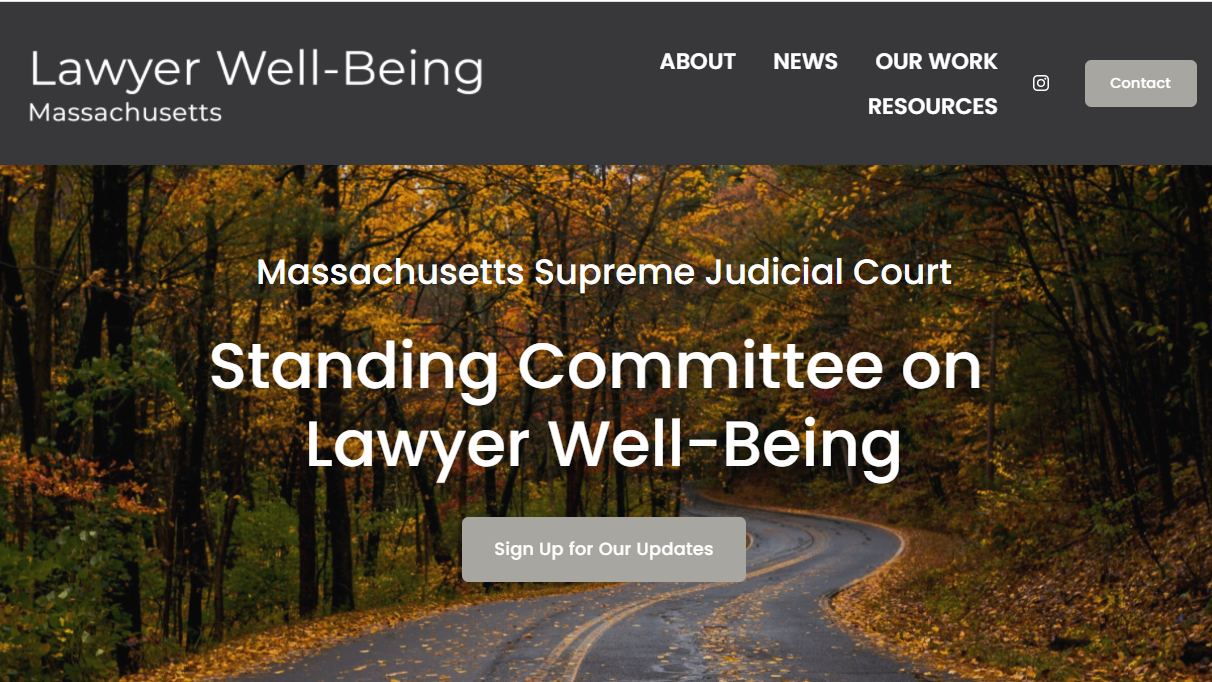As law firms begin to reopen offices, a committee of Massachusetts’ highest court today issued a statement recommending that they permanently adopt flexible working options as their standard, rather than as the exception.
Maintaining flexibility in individual working arrangements serves the dual purposes of enhancing lawyer well-being while also advancing diversity, equity and inclusion, the committee says.
“Our emergence from the COVID-19 pandemic represents a unique opportunity to shift these cultures toward inclusivity in ways that will meaningfully improve the well-being of lawyers individually and the bar as a whole,” the statement says.
The statement, Recommendations for Legal Workplaces Post-Pandemic, was issued by the Standing Committee on Lawyer Well-Being, which the Massachusetts Supreme Judicial Court established in January 2020 to examine issues affecting lawyer well-being, make recommendations for proposals that will improve lawyer well-being, and monitor progress.
Executive director of the committee is Heidi S. Alexander, who is well-known in legal technology circles as co-chair of the 2020 ABA Techshow planning board and founder of the ABA’s Women of Legal Technology Initiative.
The statement sets out a set of recommendations and guiding principles for firms, public agencies, legal services organizations, legal departments, and other legal institutions to consider as they make decisions about post-pandemic workplace structures.
Foremost among the recommendations is accepting flexibility as the standard, “rather than simply tolerating attorneys’ flexible schedules as an exception.”
“Following this extraordinary year of remote work, it is clear that flexibility in legal workplaces is possible and in fact permits lawyers across many demographics to succeed and thrive,” the statement says.
The pre-pandemic presumption in favor of in-office work operated to the detriment of those who balance work with individual challenges, disabilities, or significant external obligations, such as caring for children or aging parents, the statement says.
It also created a stigma that those who did work under flexible arrangements were somehow less committed to the job or to their clients.
The attorneys who most felt the brunt of this were women, people of color, LGBTQIA+, those with disabilities, and those caring for dependents, the statement says.
“The question now facing this great Massachusetts legal community is whether we will take the opportunity presented to us by the challenging year of COVID to begin to innovate and expand the possibilities for balance and inclusion in the workplace, or whether we will revert to pre-pandemic norms that were problematic and ultimately not sustainable for many attorneys then, and will remain problematic and not sustainable for many going forward.”
As firms are transitioning to post-pandemic workplace arrangements, the statement urges them to be guided by four principles:
- Ongoing commitment to the highest level of client service.
- Accepting flexibility in individual workplace arrangements as the standard rather than simply tolerating attorneys’ flexible schedules as an exception.
- Ensuring that attorneys with such arrangements are provided support, in terms of both material resources and fair evaluation of the attorneys’ value, on par with those physically in the office more often.
- Eliminating any form of stigma associated with attorneys choosing to avail themselves of flexible or remote work arrangements.
The statement also provides a set of recommendations for how firms should go about setting workplace policies, including ensuring diversity of decision-making teams, conducting anonymous employee surveys, and investing in technology to facilitate communications.
The statement emphasizes that flexibility in working arrangements will not only promote attorney well-being, but that it is also a tangible way to promote diversity, equity and inclusion, particularly with regard to women and women of color.
“Firms, public agencies, legal services organizations, in-house legal departments, and other legal institutions that choose not to learn from this past year and fail to move forward in innovative and inclusive ways risk losing talented women and other attorneys from already-underrepresented groups,” the statement says.
“In turn, such organizations may over time, suffer decreased performance and marketability compared to what would have been achieved with a diverse workforce, equitable policies and practices, and an inclusive culture.”
 Robert Ambrogi Blog
Robert Ambrogi Blog